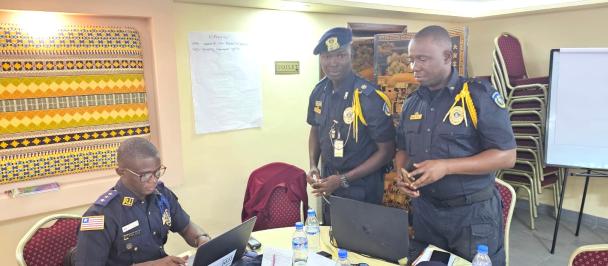The GBVIMS seeks to prevent and respond to gender-based violence in a systematic and comprehensive manner.
In continuation of the nationwide training of gender-based violence service providers in Gender Based Violence Information Management System (GBVIMS) rollout in Liberia, the Ministry of Gender, Children and Social Protection in collaboration with the United Nations Development Programme (UNDP) has conducted a weeklong training for region three- Bong, Lofa and Nimba Counties.
The training of the GBV service providers is intended to generate high quality and harmonized GBV incidents data across their respective programmes and minimize data duplication across Liberia.
The GBVIMS seeks to prevent and respond to gender-based violence in a systematic and comprehensive manner through a multi-sectoral and multi-dimensional approach through holistic care and services to survivors of GBV in Liberia.
The regional GBVIMS role out training is funded by the Government of Sweden and has been conducted in region one, comprising Grand Bassa, Margibi and Montserrado counties and region two including Bomi, Grand Cape Mount and Gbarpolu Counties.
“This training will be able to standardize the definition and classification of GBV incident types, so that we all (GBV service providers) will be speaking in one language…When we say rape, we know the exact definition, when we say physical assault and other GBV related incidents, so that we be very specific about the different incidents across the Country,” Assistant Director at the SGBV Unit of MoGCSP Simeon Kwein said at the opening of the week-long GBV Information Management System (GBVIMS) rollout training in Gbarnga, Bong County.
Mr. Kwein said even though the reporting system is not strange to service providers, it will help the participants understand how to synchronize the classification of a GBV incident data for better reporting and analysis.
The training brought together over fifty (50) participants drawn from key government ministries and agencies, healthcare workers, civil society among others.
The weeklong exercise was facilitated by the Coordinator of the International Rescue Committee’s (IRC’s) Women, Child Protection and Empowerment, Anita Krubu Tokpa Monger.
Madam Monger told the participants that the training is also expected to ensure that all GBV service providers understand exactly what kind of classification to give to a survivor when the survivor should appear before them for support.
The GBVIMS enables humanitarian workers who are responding to GBV to safely collect, store and analyze reported GBV incident data and facilitate the safe and ethical sharing of reported GBV incident data.
Under this GBVIMS, intake and consent forms will be used to collect survivors’ information and protect them to have control over their information.
It will also have GBV classification tool which makes data compilation, comparison and analysis easy.
It clearly defines the incident types and helps caseworkers to determine what type of GBV has occurred based on the survivor information.
The system also carries incident recorder and information sharing protocol to automatically generate data, customized analysis and regulate the sharing of GBV data with other actors.

 Locations
Locations



